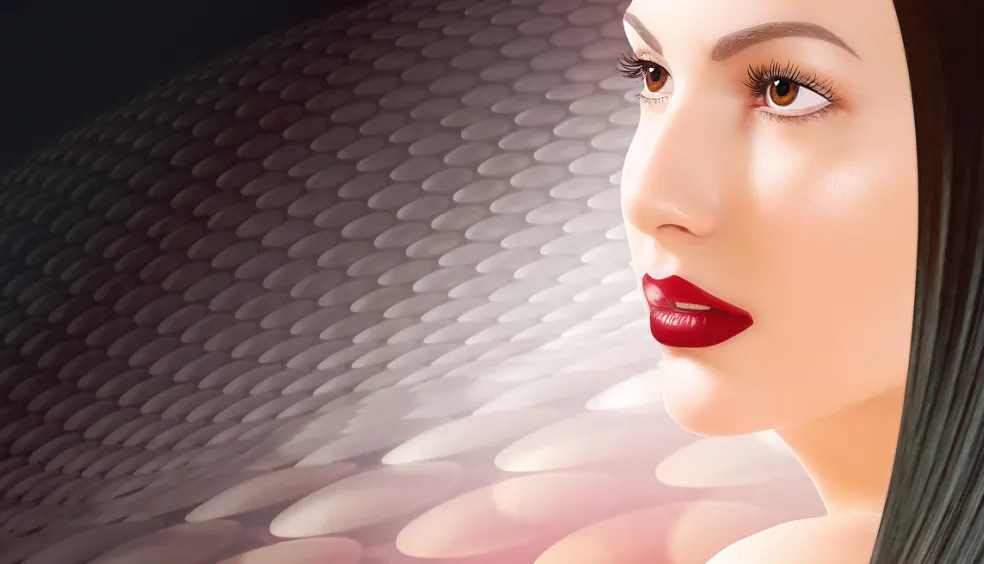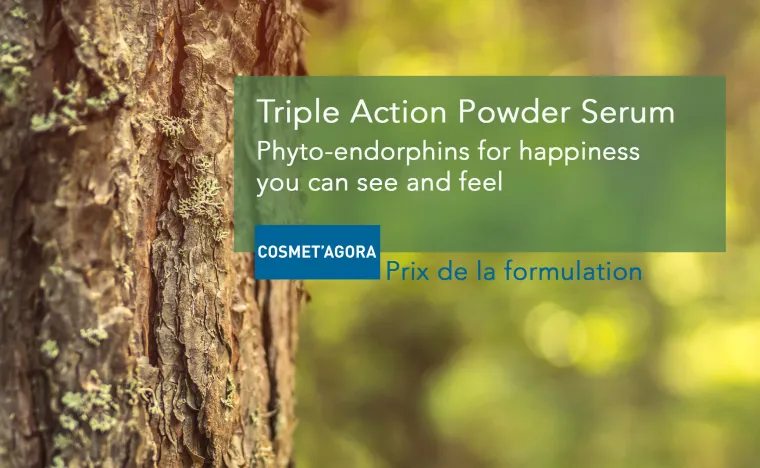Dilated pores and dull appearance?!
Two main aspects play a central role In the overall appearance of the skin, one is texture (created by the stratum corneum relief) and the second one are impurities and the pore size.
The turnover time of epidermis is normally two to four weeks but upon age 30 it increases by about 30 to 50 %. The desquamation becomes inhomogeneous due to abnormally strong connections between corneocytes (cells of the stratum corneum). Adherence of corneocytes depend on the interaction of the extracellular domain of 2 proteins called desmoglein and desmocollin and the desquamation occurs by cleavage of this interactions (figure 1).

Many adults confront the difficulty of impure skin. One reason is the increased production of sebum: the pores become more open, the skin appears greasy and shiny. Sebum is continuously synthesized by the sebaceous gland and secreted to the skin surface through the hair follicle pore. If the pore duct is blocked by hyperkeratinization a comedo is formed. In the sebum plug acne bacteria multiply and their metabolites lead to inflammation (figure 2).

Dilated pores are one of the characteristics of oily and combination skins. However, they also appear with time whatever the skin type since skin elasticity also decreases with age causing the pores to stretch. Dilated pores are especially visible in the so-called T-zone (forehead, nose, chin) and on the cheeks.
PerfectionPeptide P3 consists on a sequence of desmoglein specifically designed to compete for the binding site between desmocollin and desmoglein in the outermost layers of the stratum corneum. Tested in a placebo-controlled human study, PerfectionPeptide P3 was found to reduce the epidermal turnover time to values typical for young skin. By balancing the desquamation process without causing irritation PerfectionPeptide P3 improves the skin barrier and so, its hydration. This kind of peeling effect results in extra skin benefits such as significantly increased smoothness and reduced appearance of imperfections, wrinkle depth and furrows.
A visibly improvement of the skin surface is completed by using the mastic-based ingredient PoreAway. Mastic is an aromatic resin derived from the bark of a tree that grows on the Greek island of Chios. Clinical studies conducted on women with dilated pores and impure skin showed that PoreAway tightens dilated pores, diminishes skin shine and reduces imperfections such as comedones and microcysts. PoreAway can thus visibly improve the surface of the skin by refining its texture, reducing cutaneous imperfections and shiny appearance.









